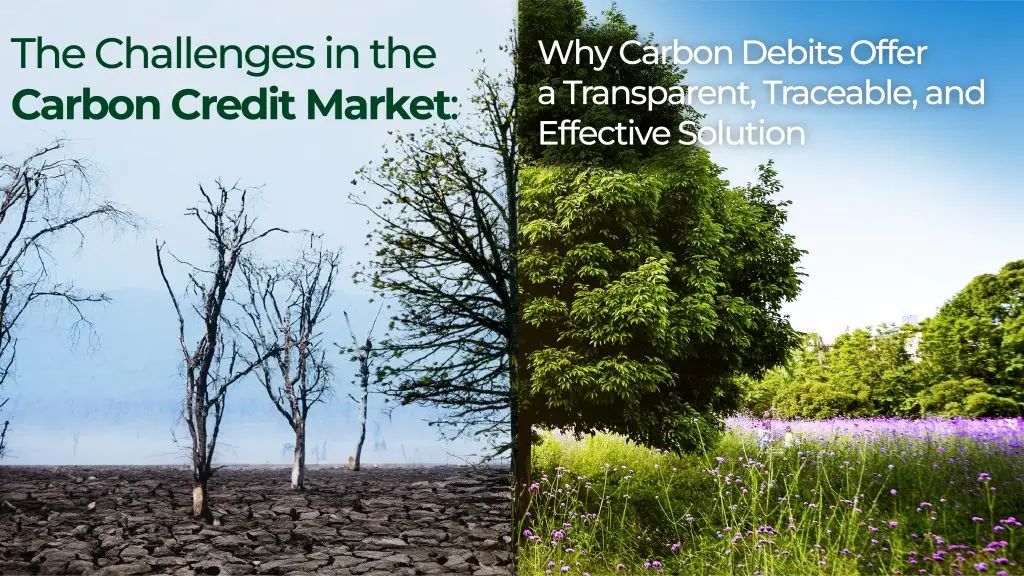The world is facing a climate crisis, and mitigating carbon emissions has become a global responsibility.
In this situation, the carbon credit market has emerged as a popular mechanism to reduce greenhouse gas emissions by promoting projects that capture or prevent the release of carbon dioxide.
However, the carbon credits market has had many challenges, including issues related to transparency and accountability.
Challenges in the Carbon Credit Market:
In this article, we will explore the problems within the carbon credit market and explain how carbon debits offer a more transparent, traceable, and effective way to offset carbon emissions by integrating cutting-edge technology.
Lack of Transparency:
- One of the major issues in the carbon credit market is the lack of transparency in assessing the actual impact of projects. Many credits are issued based on assumptions and projections, making it difficult to verify their effectiveness in reducing emissions. This opacity undermines the trust and credibility of the market.
Inconsistent Standards:
- The market is populated by various standards and registries, each with its own criteria for issuing carbon credits. This inconsistency can lead to confusion and allow for leniency in emission reduction practices. The absence of universal guidelines further complicates the market.
Verification Challenges:
- Verifying the legitimacy of carbon offset projects can be a daunting task. Many projects lack independent verification, and it can be challenging to ensure that the claimed emission reductions are accurate and free from manipulation.
Risk of Double Counting:
- Double counting occurs when the same emission reduction is claimed by multiple parties, leading to an overestimation of the market’s impact. Such discrepancies make it difficult to assess the true extent of emissions reductions achieved through carbon credits.
Why Carbon Debits are the Solution:
Carbon debits, on the other hand, represent a fresh approach to tackling carbon emissions. They are designed to address the shortcomings of the carbon credit market, providing a more transparent, traceable, and effective method of offsetting carbon emissions.
Real-time Tracking:
- Carbon debits utilize cutting-edge technology, such as blockchain and IoT sensors, to track and verify emissions reductions in real-time. This technology offers unparalleled transparency, allowing consumers and businesses to see exactly where and how their carbon offset contributions are being used.
Immutable Records:
- Blockchain technology ensures that all carbon offset transactions are securely recorded in an immutable ledger. This eliminates the risk of double counting and ensures that every ton of carbon offset is accurately accounted for.
Customization and Flexibility:
- Carbon debits align with consumers and companies who choose to have a real impact on the planet.
- Whether it’s supporting carbon sequestration or sustainable agriculture, individuals can choose carbon debits due to various reasons that may resonate with their environmental goals.
Scalable Solutions:
- Carbon debits can be integrated into various industries and sectors, making it a versatile approach to carbon offsetting. This scalability can have a significant impact on global emissions reduction efforts.
While the carbon credit market has played a role in reducing greenhouse gas emissions, it is not without its flaws. The lack of transparency, inconsistent standards, and verification challenges have raised concerns about its effectiveness.
Carbon debits, with their focus on real-time tracking, individual accountability, and cutting-edge technology, offer an ideal alternative. They provide a transparent, traceable, and effective way to offset carbon emissions and contribute to a more sustainable future. As the world struggles with the climate crisis, embracing innovative solutions that can make a genuine impact in the fight against carbon emissions is essential.

